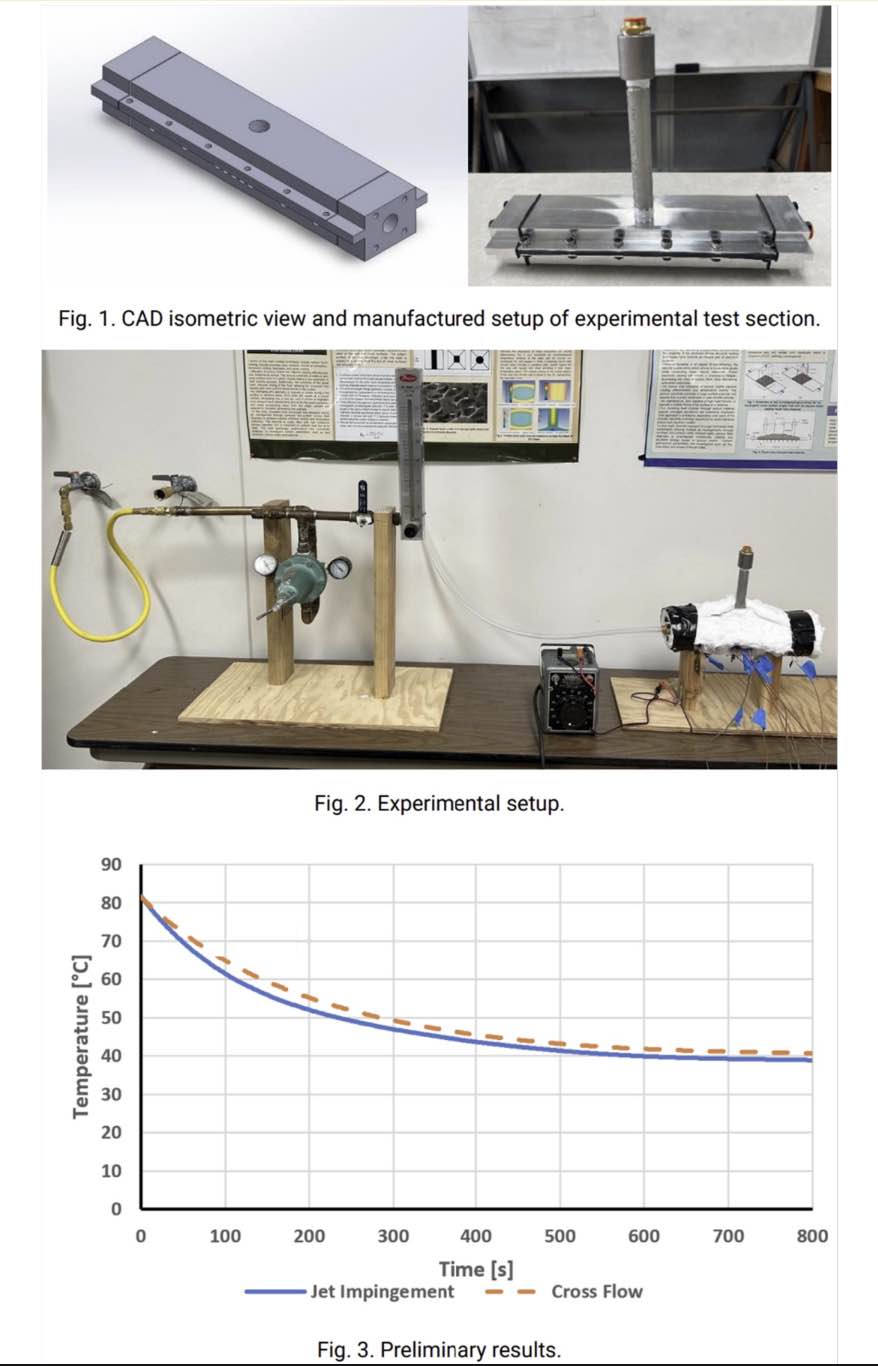Thermal Management and Energy Systems
Research Team
Lead Researchers:
-
Dr. Shadi Mahjoob, Associate Professor and Director of Thermofluid Research and Design Lab, Mechanical Engineering Department
Collaborators:
Student Team:
- Michael Ellerbe, M.S. Mechanical Engineering, B.S. Mechanical Engineering
Funding
- Funding Organization:
- Funding Program:
SYNOPSIS
- Better thermal management techniques are needed to efficiently cool the next generation of electronic devices.
- This can be accomplished through a wide range of techniques such as jet impingement, multi-phase heat transfer, and using porous media.
- In addition to electronics cooling, some thermal management systems also have applications in sustainable energy production and spacecraft technology.

Research Questions and Research Objectives
-
Manage the waste heat produced by high-performance electronic components.
-
Investigate methods of thermal management to improve the efficiency of electronic systems and enable the use of more powerful components.
-
Explore both passive and active cooling methods, as well as metal foam substrates to enhance heat transfer and improve thermal management of devices.
Research Methods
-
Explore the cooling effect of air and water flowing over a heated area representing a computing component such as a CPU.
-
Investigate the effect of employing ribbed and metal foam structures on top of the heated area.
-
Investigate the effect of using a multi-phase heat transfer device for computer chip cooling, such as an oscillating heat pipe.
Research Results and Deliverables
-
Components: Enclosed and insulated aluminum channel, electric heating element, pressure regulator, flow meter, thermocouples, pressure transducers, data acquisition system (NI 9213, NI 9253, LabVIEW software).
-
Jet impingement with air effectively cools the heated area. Crossflow also cools the heated area to a slightly lesser extent.
-
In the next stage of research, the effectiveness of the cooling system will be investigated using water. The system will also be tested with metal foams using water and air as the working fluids.
Commercialization Opportunities
-
Application: Electronics cooling, sustainable energy production
-
Key Values: Efficiently cool electronic devices to enable the use of more powerful computing components.
-
Potential Customers: Tech companies, space agencies, energy providers
Research Timeline
Start Date:
End Date:
Lead Researchers:
-
Dr. Shadi Mahjoob, Associate Professor and Director of Thermofluid Research and Design Lab, Mechanical Engineering Department
Collaborators:
Student Team:
- Michael Ellerbe, M.S. Mechanical Engineering, B.S. Mechanical Engineering
Funding
- Funding Organization:
- Funding Program:
